African American History Month: 7 Critically Important Issues for USA
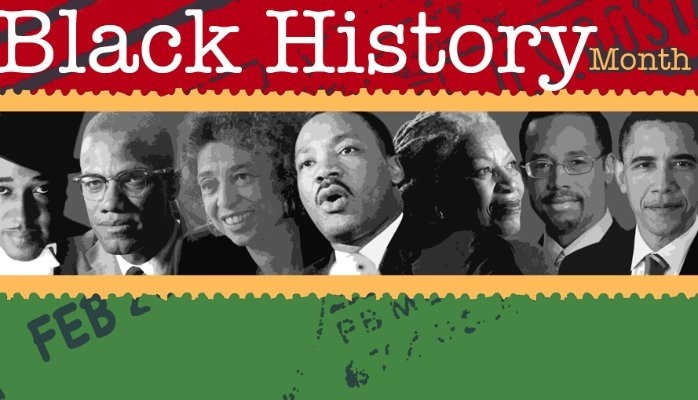
As the USA observes National African American History Month in February, it’s an opportune time to examine several critically important issues confronting the black community. That’s because for America to truly thrive as “one nation undivided” then all citizens must be afforded equal opportunities to rise as high as their God-given talents and abilities allow — without discriminatory barriers.
This is the only way we can effectuate “life, liberty and the pursuit of happiness” for all, as articulated in the Declaration of Independence. But, first, some background:
For those unfamiliar with the annual commemoration, African American History Month is a time to celebrate the rich cultural achievements, diversity and contributions of the black community to the fabric of society. As President Obama pointed out last year:
“During National African American History Month, we recognize champions of justice and the sacrifices they made to bring us to this point, we honor the contributions of African Americans since our country’s beginning, and we recommit to reaching for a day when no person is judged by anything but the content of their character.”
While much progress has been made since the civil rights movement of the 1960s, many challenges remain in the fight for equal justice for all Americans — including African Americans. Thus, below are seven critically important issues to consider (please note this list is not meant to be exhaustive. You can identify other issues of importance in the comment section below):
- Race & Law Enforcement
- Income Inequality
- Access to Quality Education
- Employment Discrimination
- Hidden Bias
- Workforce Diversity
- Voting Rights
These issues deserve serious national attention not only during African American History Month, but every day and month of the year.
Race & Law Enforcement
Numerous studies and data continue to show that black men are arrested, convicted and imprisoned at a much higher rate than whites and other groups. This is especially applicable to young black men in urban areas.
Some argue this is due to systemic racial bias in the nation’s law enforcement system, which disadvantages African Americans as a whole. However, others claim that black men commit the most crime and should be held accountable under the law.
Regardless of which side you’re on, everyone should agree that more young people (of every race, color and creed) should be taught and encouraged to exercise non-violent means of protest to foster positive change. This approach of civil disobedience was championed by Dr. Martin Luther King, Jr.
The iconic civil rights leader proved that freedom of speech, expression and assembly can result in historic progress — albeit through steadfast perseverance and fortitude in the face of grave injustice. This was evidenced by the enactment of the groundbreaking Civil Rights Act of 1964 and the Voting Rights Act of 1965, which helped change America for the better.
These landmark civil rights laws moved America closer to equality for all.
In other words, violence should never be the answer to achieve equal rights. This is true whether it comes at the hands of community policing or from disadvantaged black youth allegedly targeted by police. Dr. King showed that civil disobedience pays dividends in terms of racial justice. This is a lesson more young people need to learn.
Income Inequality
There continues to be a gaping disparity in the annual average household earnings between blacks and whites, not to mention the percentage of people on welfare and food stamps. Consider some statistics from the U.S. Census Bureau:
- $36,544 — The annual median income of black households in 2015, compared with the nation at $55,775. That’s only a $1,000 increase from the prior year.
- 25.4% — The percentage of the black population below the poverty level in 2015, while nationally it was 14.7%. That’s nearly a 1% drop from the prior year.
- 28.7% — The 2015 percentage of the civilian employed black population age 16 and over who worked in management, business, science and arts occupations, while 37.1% of the total civilian employed population worked in these occupations. That’s unchanged from the prior year.
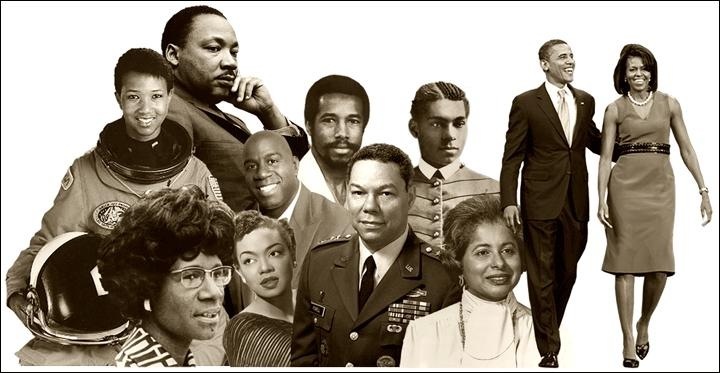
Access to Quality Education
This year’s theme for African American History Month is, “The Crisis in Black Education.” This is a fitting theme because the U.S. public school system appears badly broken and failing America’s youth, especially within the inner cities. This disproportionately hurts and holds back black youth from reaching their full potential via college and gainful employment.
Such conspicuous racial disparities in education are based on numerous factors, including low test scores, high drop out rates and alleged discriminatory discipline (to name a few). Additionally, despite decades of affirmative action in higher education, the rate of young black men and women attending and graduating from college is still disproportionately low compared to whites and other groups.
Further, over the past two decades the U.S. Supreme Court has chipped away at affirmative action in higher education. The stark racial divide in educational attainment is most visible at top-ranked universities and the prestigious Ivy League — again, despite decades of continued efforts to level the playing field.
According to the U.S. Census Bureau only 20% “of the black population age 25 and over [received] a bachelor’s degree or higher in 2015.”
Employment Discrimination
It’s often said that the workplace is a microcosm of society. Therefore, many employees don’t leave their biased attitudes at the company doorstep.
It’s unfortunate and disturbing that discrimination appears to continue unabated in the modern 21st century workplace. This is evidenced by the persistently high number of race discrimination complaints filed against private sector employers at the national, state and local levels.
Yet every employer should know by now that discrimination is bad business— in addition to being morally reprehensible and illegal. Discrimination poisons the work environment, resulting in lower performance, lost productivity, decreased morale, increased absenteeism, less employee engagement and more job dissatisfaction. All of these factors hurt employees and employers alike, creating a no-win situation.
Hidden Bias
Some attribute the ugly undercurrent of societal bias against African Americans as deeply rooted in the nation’s history of racism dating back to slavery and the Civil War.
Surveys and empirical evidence show the scourge of racial bias and bigotry have not disappeared — whether it’s blatant or subtle, explicit or implicit, intentional or unconscious. Therefore, many academics and civil rights advocates point to a wave of racial bias hiding just beneath the surface.
Racial bias is harder to prove when it’s more subtle and less overt.

Workforce Diversity
Despite signs of racial progress in the workplace, there is still a glaring under representation of black CEOs, board members and senior executives throughout corporate America, from Wall Street to Main Street USA. Moreover, there’s a scarcity of upper-income black professionals in many industries compared to other groups. One good example is the high-tech sector in general, and Silicon Valley in particular.
Is this due to discrimination in recruitment and hiring? Or is it based on a lack of qualified blacks in the hiring pool?
As noted above, employment discrimination and hidden bias against African Americans is still problematic. This only overshadows otherwise admirable efforts by some employers to embrace workforce diversity through policies and procedures based on equality of opportunity.
But there should be no disputing that a diverse labor force is essential for the USA to remain competitive in a global marketplace. That’s because a diverse workforce challenges traditional and antiquated thinking with out-of-the-box ideas and innovative solutions. This can lead to improved productivity, efficiency and effectiveness of overall business operations. A win-win outcome.
Additionally, fostering workforce diversity helps companies to expand their consumer base and improve recruitment, retention and advancement of the best available talent (who might otherwise get hired by the competition).
Voting Rights
Many civil rights groups argue that voting rights of the black community have been trampled over the years, most notably in the South. They attest this is due to alleged discriminatory state and local laws which categorically disenfranchise people of color.
There continue to be significant court rulings over the scope and viability of the Voting Rights Act.
These cases at the state and local level often focus on voter identification at the ballot box, or lack thereof. This has been evidenced by images of otherwise eligible black voters waiting in long lines on Election Day, or being turned away from polling places for frivolous reasons.
One recent example is North Carolina. The Washington Post editorial board wrote that voting laws in North Carolina are indeed irregular, concluding: “As a legal proposition, it’s difficult to prove that a government policy was devised with the deliberate intent of racial discrimination. But make no mistake: North Carolina’s highly restrictive voting rights law, enacted in 2013, is meant to suppress votes, in particular votes cast by minorities.”
Moreover, this past August the U.S. Supreme Court rejected an effort by North Carolina to maintain key parts of the restrictive law following an unfavorable ruling at the appellate level.
CNN reported at the time, “The [Supreme] court’s order is a major victory for challengers to the law, including civil rights groups and the Department of Justice, which argued that it had a disparate impact on minority voters. In July, a three-judge panel of the Fourth Circuit Court of Appeals held that provisions of the law targeted ‘African-Americans with almost surgical precision.’ ”
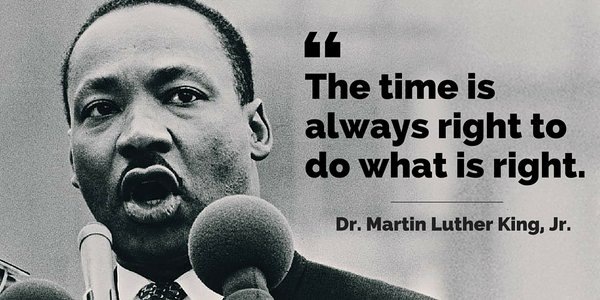
Final Thoughts
Lasting solutions to the aforementioned issues are perplexing, varied and/or controversial, depending upon whom is asked. Nevertheless, as President Obama reminded us last year:
“As we rejoice in the victories won by men and women who believed in the idea of a just and fair America, we remember that, throughout history, our success has been driven by bold individuals who were willing to speak out and change the status quo.”
Dr. King once optimistically stated: “The arc of the moral universe is long, but it bends towards justice.”
The big question as we observe African American History Month is this:
Has the “arc” Dr. King spoke of bent enough to ensure equal justice for all Americans, regardless of race or skin color?
Despite the election and reelection of the nation’s first black President, many Americans inside and outside the black community still think the answer is no. Unfortunately, we have not yet reached the post-racial society for which many had hoped.
And that answer is simply not good enough for America to thrive worldwide at the dawn of a new millennium.
DBG
Note: This post is also featured on Thrive Global (Medium) and American Diversity Report
You also might like:
- Lessons from MLK for Millennials & Gen Z (Jan. 14, 2017)
- Why Workforce Diversity is Simply Good Business (June 28, 2016)

NOTE: All views and opinions are those of the author only and not official statements or endorsements of any public sector employer, private sector employer, organization or political entity.
"""""
Articles from David B. Grinberg
View blog
We've all heard the famous 17th century English phrase, "The early bird catches the worm." But th ...
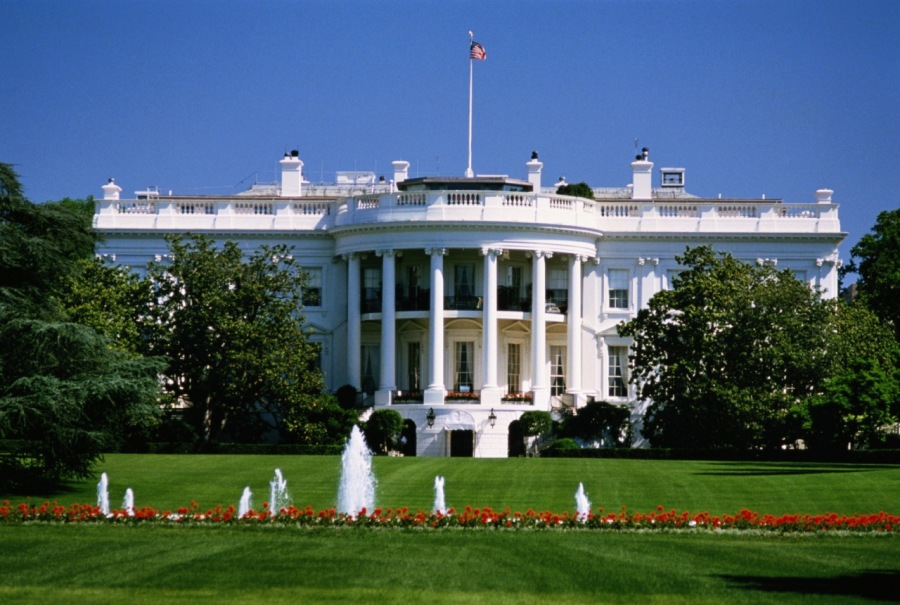
Miguel de Cervantes, the 16th century Spanish novelist, poet and playwright, once said: “Believe the ...
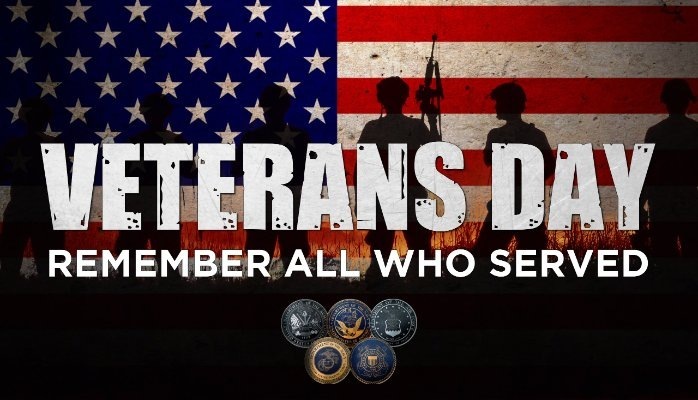
Something arguably unpatriotic has occurred mere miles from the nation’s capital this Veterans Day. ...
You may be interested in these jobs
-

Private Duty Nurse
Found in: One Red Cent US C2 - 2 days ago
Aveanna Champaign, United StatesPrivate Duty Nurse (LPN) · Job Ref: · 194935 · Location: · Champaign, IL 61821 · Category: · LPN/LVN · Line of Business: · PDS · Pay Rate: · $ $35.00 per hour · ApplyRefer a FriendBack · Find yourself here.Aveanna is compassion and passion rolled into one inspired purpose. It's a ...
-
Anesthesiology Assistant Professor
Found in: Lensa US P 2 C2 - 1 day ago
Cincinnati Children's Hospital Cincinnati, United StatesExpected Starting Salary Range: Salary Commensurate with Experience · Pediatric Anesthesiology Faculty Opportunities · The division of Pediatric Anesthesiology at Cincinnati Children's is seeking Board Eligible/ Board Certified Pediatric Anesthesiologists to join a busy, collegia ...
-

Workday Source to Pay Implementations Consultant, Manager
Found in: beBee S2 US - 3 weeks ago
PwC Greater Denver Area, United States Full timeA career in our Workday Finance practice, within Workday Consulting services, will provide you with the opportunity to help our clients leverage Workday technology as a tool to enhance and unify Human Resources, talent management, and finance. We focus on understanding the forces ...

Comments
David B. Grinberg
7 years ago #8
David B. Grinberg
7 years ago #7
David B. Grinberg
7 years ago #6
David B. Grinberg
7 years ago #5
David B. Grinberg
7 years ago #4
Thanks for sharing your important insights Aleta Curry and, yes, I did ask for it. I agree that there's likewise discrimination within different races, national origins and religions. For purposes of this post, black on black discrimination can occur based on skin color -- yes, the hue of one's skin tone. How's that? Because lighter skinned blacks might be discriminated against by darker skinned blacks and vice versa. This beckons back to the days of slavery when light skinned blacks often got to work inside the master's residence, while the dark skinned blacks were forced to labor under far harsher conditions outdoors in the field.
David B. Grinberg
7 years ago #3
Thanks so much for your valuable feedback, Devesh Bhatt, which is most appreciated as always. I will try to answer the questions you posed: I believe that mass protests are unquestionably the "lesser of two evils" when compared to "authoritarian repression" by Big Brother. The only caveat is that the mass protests must be non-violent in nature. And yes, I think both Gandhi and MLK both proved that peaceful mass protests are in fact sustainable in reaching positive outcomes. But that is neither easy, nor does it happens overnight.
David B. Grinberg
7 years ago #2
I appreciate your constructive comments Brian McKenzie and I agree with you that hate is not confined to only one ideology, race, religion, political faction, etc. That's really a good point you make. However, if you're referring to the incident at Cal Berkeley, it was widely reported that a group of self-proclaimed anarchists infiltrated the campus from Oakland and were the chief culprits of the mayhem and violence. Despite my personal views about the speaker, I would point out that it's contradictory for any group of people who purportedly support free speech to violently and unlawfully prevent an invited speaker to campus from exercising those same free speech rights. You can't have it both ways by only supporting free speech for those with whom you agree, while stifling it for those with whom you differ. That's the sad irony of the situation.
David B. Grinberg
7 years ago #1